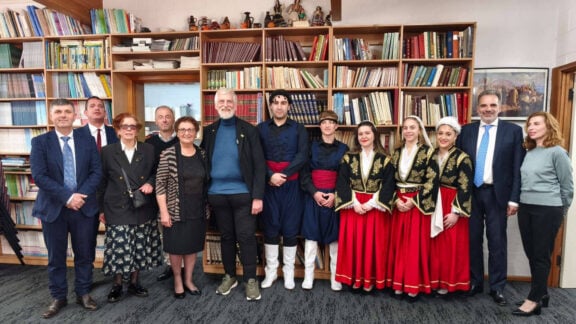Job applicants with non-English names receive half as many call backs as those with English names, according to a new study by from Monash University published in The Leadership Quarterly.
The study found that only 14.3 per cent of Greek names received a positive outcome from a resume while 13.7 per cent did for lower-level job.
Greeks fared only slightly better than the other ethnic groups, perhaps strengthening the notion that Greeks are more accepted in Australia now, as they reach their fourth generation.
Six different ethnic groups were investigated by varying the names on resumes to Aboriginal and Torres Strait Islander, Arabic, Chinese, English, Greek and Indian names, but all candidates were born in, worked in, and studied in Australia.
Liebbrandt points to stereotypes and the generalisation of what a leader looks like to the reasons for non-English names being ignored.
However, they were still almost 50 per cent less likely to secure an interview than those with Anglo names. Greek Australians are all too aware of how their names can impact on their employment and life chances in Australia, and there is plenty of evidence – especially in the past – of them Anglicising and shortening their names to avoid any innate bias when applying for jobs.
The researchers from Monash University found that applicants with non-Anglo names are 57 per cent less likely to be considered for a leadership role and 45 per cent less likely for non-leadership jobs. The two-year study saw researchers send more than 12,000 job applications to over 4000 job ads across Melbourne, Sydney, and Brisbane.
Three applications were sent for 12 different occupations, each included an almost identical resume, with the same level of qualification, with the only difference being the name. In what is the first study to include leadership roles in its research, lead researcher Professor Andreas Liebbrandt says they represent the issue in new context.
The study found that ethno-cultural discrimination was higher if the leadership role required customer contact. For these type of roles, 30.6 percent of positive responses came from a resume with an English name whereas only 11.1 per cent of non-English received a positive response.
The researches point to the “cultural congruence proposition” and argue that organisations “may prefer leaders who endorse a country’s culture and values”, because in the minds of employers they are more likely to “create a more harmonious workplace and better correspond to employees’ expectations of a leader.”
A non-English name tends to challenge the idea of cultural cohesion, as it is laden with assumptions such as lacking “individuality” and independence.
The findings show that when it came to the job requiring more creative, and innovation skills those with non-English names had a better chance of securing those jobs than leadership-based position. “Our findings provide support for the existence of pronounced discrimination in the recruitment of leadership positions,” he said.
“Their decision-making could be also influenced by stereotypes and general leadership prototypes, so that they would prefer applicants with English names for leadership positions.”
Lead researcher Mladen Adamovic suggests that recruiters may think that customers expect and prefer to deal with one of those “prototype” leaders, someone that represents the organisation, so therefore they disregard someone of ethnic background.
Adamovic says the results proved discrimination was widespread in the job market.
“It’s pretty sad and frustrating to see that discrimination is caused by just a name on an application,” he told 7NEWS.
“There’s a glass ceiling that already starts before someone enters an organisation. Previous research only assumed there was this ceiling once someone was in a company.”
Last year, academic and former ABC broadcaster Dr Phil Kafcaloudes investigated why many Greeks anglified their names to fit into Australia.
In Neos Kosmos Dr Kafcaloudes wrote, “My godfather Nick Maniarizis became Nick Manning on arrival in Australia when the NSW Greek consul’s wife told him his Greek name was too difficult to use in 1950s Australia. He kept the Manning name until his death in 2017, even during his years as head of the NSW chapter of AHEPA.”
He went on to highlight three core reasons why Greeks changed, their names, convenience, acceptance, and racism.









